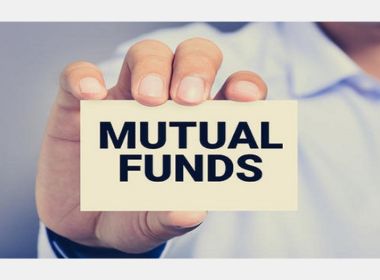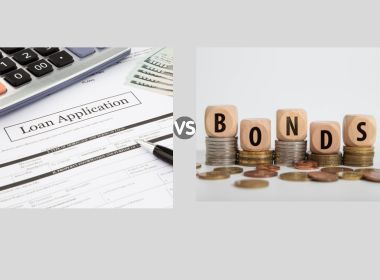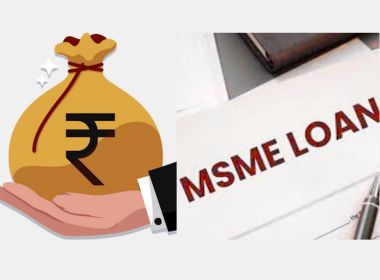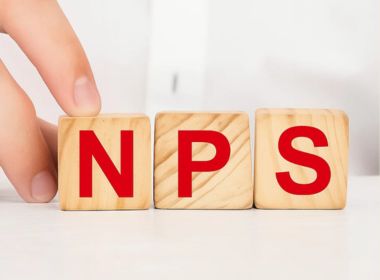Search Suggestions
- Gold Loan
- Money Transfer
- Mutual Funds

8 Simple Ways to Make Credit Card Repayment
We are living in a fast-moving world and time has become the most precious commodity. We want things and services quickly and fast. Gone are the days when you had to mull over financial arrangements to buy even a simple article. Then there is the cumbersome process of visiting a bank, withdrawing money, and physically carrying the cash to a store to purchase what you like. If it is a big-ticket purchase, you might have to give reasons to your bank for the large withdrawal. And not only that, the money debited from your account is gone forever. ATM and debit cards addressed this inconvenience to some extent but none come with the features of a credit card. Get a credit card, spend on anything, enjoy interest-free credit, and make the credit card repayment on time- the utilities are matchless.
Effortless, convenient, and fast- these are just some of the benefits of a credit card. However, this ease of shopping to gratify your wants and desires can easily spiral into a vicious debt cycle. Overspending and spending beyond your limits, exorbitant interest rates and charges on late payments, and susceptibility to fraud are some of the reasons to be very careful. If you are unable to make repayment of monthly credit card bills, apart from the outrageous charges, your credit score goes for a toss. To pay these bills, you might have to take a loan or borrow money from friends and family. If you are finding it difficult to pay back a huge accrued amount on your card, we shall discuss the best ways to repay your credit card debt.
Advantages and Disadvantages of Using a Credit Card
Credit cards have changed the way how people pay for goods and/or services. These plastics have earned a bad reputation and but that’s when they are not used correctly. When used responsibly, credit cards can increase your credit score and thereby enhance your financial health.
| Advantages | Disadvantages |
|---|---|
| Convenience: It is the most important factor. Credit cards are the most accepted mode of payment. | Hidden Charges: Credit cards have a number of taxes and fees, such as late payment fees, joining fees, renewal fees and processing fees. Be sure to always read the fine print. |
| Easy Access to Credit: Credit cards work on a deferred payment or Buy Now Pay Later basis. They are a type of unsecured loan. | Overspending: Getting an interest free credit period and a high credit card limit could lead you to make unnecessary expenditures. |
| Building Creditworthiness: Regular repayment of credit cards shows responsible credit behavior and benefits you in future loan applications. | Damaging Credit worthiness: Non-repayment of credit card bills on time can hamper your credit score and thereby hindering your chances of getting future credit. |
| Interest Free Credit Period: Most cards offer 45-60 days of interest free credit usage. You can make your purchases and not get charged interest until your bill is generated. Then, you should make the repayment of the credit card outstanding amount in full. | High Interest Rates: Defaulting on monthly credit card payments can get you charged at 36% per annum on average. |
| EMI Facility: Rather than paying the entire outstanding bill, you have the option to pay it in EMIs, especially for big purchases. This comes with a charge that varies for different issuers. The extra charge on EMIs is lesser than taking a personal loan for a large transaction. | No-cost EMI Schemes: These are just marketing gimmicks to lure customers and they keep spending extravagantly at supposedly ‘no cost’. In truth, the interest, GST and other charges are passed on to the customer in some way or the other. |
| Incentives and Offers: Most credit card issuers have joining bonuses and loyalty programs that incentivize their customers. Redeemable cash- back and reward points, periodic offers and discounts all help save money for the users. | Understand Your Financial Health: Before giving in to the temptations of offers and incentives, be sure that you can service these cards. |
| Unauthorized Usage Protection: Most credit card issuers protect customers from unauthorized transactions on your card when stolen or lost. Also, as per RBI, customers are not liable to prove such fraudulent electronic payments. The liability lies on the issuer. | Credit Card Fraud: With advances in technology, hackers can very easily clone a card, steal confidential personal data, make unauthorized purchases etc Inform the issuer of any suspicious transaction on your card. |
| Record of Expenses: Credit card statements are a record of your expenses and could help you take corrective action if needed. | Going off-track: Not understanding your credit card bill can lead you going off track on your expenses. |
8 Simple Ways To Make Credit Card Repayment
Debt piling up when credit cards are used recklessly has become a common occurrence. But not all is lost. With these smart credit card repayment tips, you can come out of the debt trap.
-
Balance Transfer Facility: If you have accrued a large bill on a particular credit card, you could consider transferring the outstanding balance to another one. Please note that this is a temporary relief. The second bank allows a credit-free period of up to 90 days for easier repayment of your pending amount.
-
Convert Payments into EMIs: Although you would be charged a fee for converting the outstanding balance into EMIs, it is still a cheaper option than taking a personal loan to repay the debt.
-
Pay-off High-Interest Credit Cards First: If you have accumulated debts on multiple credit cards, pay the one with the highest interest rate first.
-
Opt For Automatic Online Payments: One of the main reasons for falling into a debt trap is the cumbersome process of keeping track of billing cycles and manually making credit card repayments. And once you fail to clear the bill on time, the outstanding balance starts accruing huge interest. The best way to repay your credit card and not be in debt is to set up automatic online payments.
-
Clearing the lowest bill amount: Once you are done with clearing the credit card with the highest interest, you can shift to the bill which has the least pending balance. This way, you will have no dues pending on two cards. This boosts you to tackle the next card.
-
Borrow Money from Friends and Family: Family and friends are the people who you turn to in times of need. Borrowing money from close ones usually involves no or low interest on the loan. Leverage your support system to make your credit card repayment.
-
Limit Your Credit Cards: No matter how enticing the offers are, limit the number of cards you use. Once you have cleared the debts on a particular card, you could consider closing it and using just a couple of good credit cards. The lesser the number of cards, the more is the probability of being on track with repayments.
-
Leverage your Assets: If you wish to clear off all the piled-up high-interest credit card debts, you could consider taking a short-term, low-interest secured loan such as a gold loan or an overdraft against fixed deposits. Once the card bills are repaid, you only have to service a low-interest loan.
Credits cards are one of the best financial tools to support your lifestyle but only when used responsibly. A disciplined approach towards spending via these cards and the subsequent repayment enables you to enjoy the many benefits a credit card offers. The best way to repay your credit card debt is not to have one.
CATEGORIES
OUR SERVICES
-

Credit Score
-

Gold Loan
-

Personal Loan
-

Cibil Score
-

Vehicle Loan
-

Small Business Loan
-

Money Transfer
-

Insurance
-

Mutual Funds
-

SME Loan
-

Corporate Loan
-

NCD
-

PAN Card
-

NPS
-

Custom Offers
-

Digital & Cashless
-

Milligram Rewards
-

Bank Mapping
-

Housing Finance
-

#Big Business Loan
-

#Gold Loan Mela
-

#Kholiye Khushiyon Ki Tijori
-

#Gold Loan At Home
-

#Sunherisoch
RECENT POSTS

Understanding Gold Bees: How it Works, Net Asset Value, Returns and More
Know More
Multi Cap and Flexi Cap Mutual Funds: How Are They Different?
Know More
Online Personal Loan vs. Offline Personal Loan - Which Is Better for You?
Know More
10 Tips to Improve Chances of Personal Loan Approval
Know More
10 Factors Affecting Mutual Fund Performance Explained Simply
Know More
10 Key Factors That Affect Your Personal Loan EMI
Know More
What Is Fine Gold? Meaning, Purity (999), Uses & Price Explained
Know More
Gold vs Silver: Which is Better as an Investment?
Know More
Why Gold Is a Safe Haven Asset: Meaning, Benefits & Real Examples
Know More
Gold or Bitcoin - Best Investment for Value Retention
Know MoreFIN SHORTS

The Best 7 SIF Funds of 2026: A Better Way to Invest
Know More
Gold Price Hits ₹1,40,000: How It Impacts Gold Loan Amounts
Know More
How to Check Loan Number: Step-by-Step Process
Know More
How to Open an SIP Account: Online and Offline Process
Know More
How Do I Apply for MSME Certification Online in India?
Know More
7 Important Reasons to Choose Hallmark Gold When Buying Jewellery
Know More
What Are Co-Pay and Deductibles in Insurance Policies?
Know More
Should You Take a Loan Against Your Mutual Fund or SIP?
Know More
Top 5 Best Mid-Cap Mutual Funds to Watch in 2026
Know More
Are Personal Loans Right for Retirees? Key Points to Consider
Know More
What Happens to a Personal Loan After the Borrower Dies?
Know More
Best Loan Choices for Credit Scores of 580 and Below
Know More- South +91 99469 01212
- North 1800 313 1212





